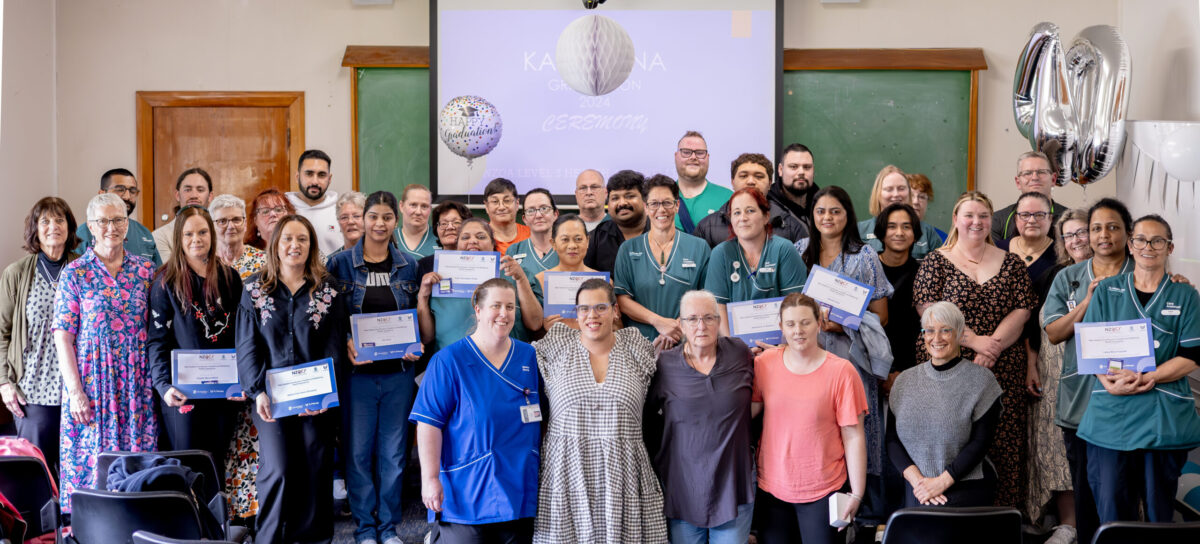Te Whatu Ora MidCentral nurse educator Raewyn Ormsby-Lobo said it was one of the largest cohorts of hospital-based kaiāwhina to graduate in New Zealand.
“We have long recognised the value of our kaiāwhina and their outstanding contribution to patients and their whānau, as well as their support of our nursing staff.”
Ormsby-Lobo said the nursing team had noticed a “huge improvement in patient care” as well as fewer pressure injuries since the training.
Others said they felt more confident to speak up for patients after the training.
The training also included safe patient handling, Māori and Pacific cultural values, and dealing with challenging behaviours, she said.
One long-time health-care assistant (HCA) David Goldstone he found it helpful to keep up with evolving practices in health care.

“A few things have changed since 20 years ago, since I first started.”
Training as part of a larger cohort was also good for team support, he said.
“It is worth doing and worth having.”
Others said they felt more confident to speak up for patients after the training.
Many were now considering progressing with their level four certificate in health and wellbeing, a two year course, Ormsby-Lobo said.
The COVID-19 pandemic revealed the “untapped potential we have in our kaiāwhina” and nurturing this was a priority for Te Whatu Ora MidCentral.
‘In some instances, they may just be getting formal recognition for existing competencies.’
Originally, 54 had enrolled, however some retired, resigned or moved hospitals over the year, Ormsby-Lobo said.
Te Whatu Ora MidCentral had partnered with work-based learning provider Careerforce — part of Te Pūkenga — to support the kaiāwhina’s training.
The kaiāwhina — who worked across acute care, medical, mental health, operating theatres, outpatients and older adults — had worked hard to complete the on-the-job training over the year, she said.
Now, their skills at providing person-centred care under the direction of a nurse or other registered health professional would now be formally recognised.
“In some instances, they may just be getting formal recognition for existing competencies.”
The ‘mana and contribution’ of kaiāwhina
Ormsby-Lobo said the term kaiāwhina encompassed a range of non-regulated roles in the health and disability sector such as health-care assistants or nurse aides and reflected the “mana and immense contribution of this large and diverse workforce”.
Te Whatu Ora MidCentral planned to roll out more kaiāwhina training in the new year — including those who work with district nurses in the community. Other regions had also shown interest in picking it up, she said.
Careerforce workplace advisor Elaine Dittert said she was delighted to see Te Whatu Ora’s commitment to upskilling the kaiāwhina workforce



